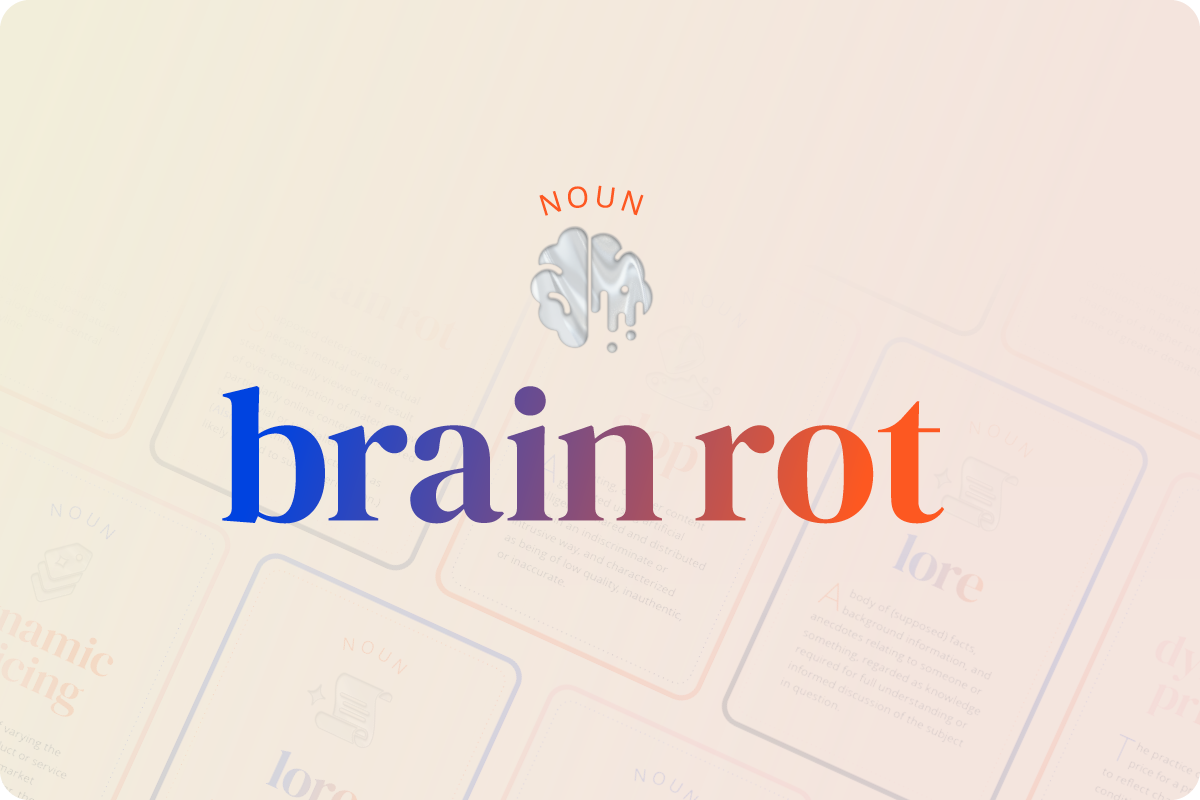Brain rot added to the Oxford English Dictionary

Our Oxford Word of the Year 2024, brain rot, has been added to the Oxford English Dictionary (OED) as part of our latest quarterly update.
Brain rot is defined as “a perceived loss of intelligence or critical thinking skills, esp. (in later use) as attributed to the overconsumption of unchallenging or inane content or material. Now also: content or material that is perceived to have this effect.”
In 2024, we saw a significant spike in usage in 2024, leading to add brain rot to our shortlist for Oxford Word of the Year, along with demure, dynamic pricing, lore, romantasy, and slop. We announced brain rot as the winner after over 37,000 people had their say in a public vote.
Before adding a word to the OED—the primary historical dictionary of the English language—our language experts gather independent examples from a variety of sources, as well as evidence that the word has been in use for a reasonable amount of time.
The first recorded use of brain rot goes back more than 150 years to Henry David Thoreau’s book Walden, published in 1854. Thoreau criticized society’s tendency to devalue complex ideas, or those that can be interpreted in multiple ways, in favour of simple ones, and saw this as indicative of a general decline in mental and intellectual effort. More recently, the term is often used in relation to social media, doomscrolling, and overconsumption of unchallenging content online.
Since we crowned it as Oxford Word of the Year, conversations around brain rot and its perceived effects have continued to evolve:
- Scientists have said that, although people may experience negative feelings after using their phones or social media for a long time, there is no evidence to suggest that brains actually deteriorate as a direct result of this behaviour
- As part of Ofcom’s Children’s Media Literacy Report 2025, several children used the word brain rot to describe both the content they were seeing online, as well as the negative feeling they experienced after engaging with it
- A recent study by Fluid Focus and The Times have found that students are on track to spend 25 years of their lives on their phones, revealing how excess and unguarded phone use may affect focus, wellbeing, and performance. This comes shortly after a UK survey found that almost half of 16-21 year-olds would prefer a world without internet.
- Some have come to the defence of brain rot and doomscrolling behaviour, saying that whilst some pieces of content are written off as being or “causing” brain rot, they can be entertaining and a good way to decompress.
Also added to the OED in this update is doorstopper (“a bulky or heavy object, especially a thick book”)—reading being one way to ward off any potential feelings of brain rot.
Other new submissions include foods such as avo or Dutch baby; compounds of stunt, such as stuntwoman (“a woman employed to perform dangerous or physically demanding sequences in place of an actor”) and stunt coordinator (“the person in charge of planning, arranging, and supervising stunts for a particular production”); as well as many new additions and revisions of words from Australia, Canada, Scotland, and Sri Lanka.
You can read more about the June 2025 update here.




